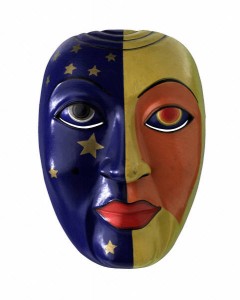Mixed Bipolar Disorder – Mixed Mood Episodes in Bipolar 2
As I mentioned, mixed moods are technically considered part of the manic phase of bipolar disorder and thus, by definition, are only a part of bipolar disorder type 1. However, those of us with bipolar type 2 can tell you we mix it up with the best of them.
So, in part II of this series on mixed moods in bipolar disorder, I look at mixed moods in bipolar type II.
 Mixed Moods in Bipolar Type II
Mixed Moods in Bipolar Type II
Now that we’ve wandered into Diagnostic and Statistical Manual (DSM)-free territory, definitions on mixed states get a bit looser.
Mixed mood states may be, in fact, the most common way of experiencing bipolar type II. I find most people have a hard time distinctly separating “depression” from “hypomania” from “normal” moods. There is just too much crossover.
Two Types of Mixed Moods in Bipolar Disorder
Additionally, considering mixed moods to be part of the manic phase of bipolar disorder becomes useless when looking at bipolar II. As an article in Psychiatric Times suggests, there are really two types of mixed moods in bipolar disorder:
- Mixed mood with depression as the primary mood (meeting the criteria for depression with some hypomania symptoms present)
- Mixed mood with hypomania as the primary mood (meeting the criteria for hypomania with some depression symptoms present)
Those two mood types better reflect my own experience and I think the clinical experience of other patients and doctors.
Read More








Recent Comments